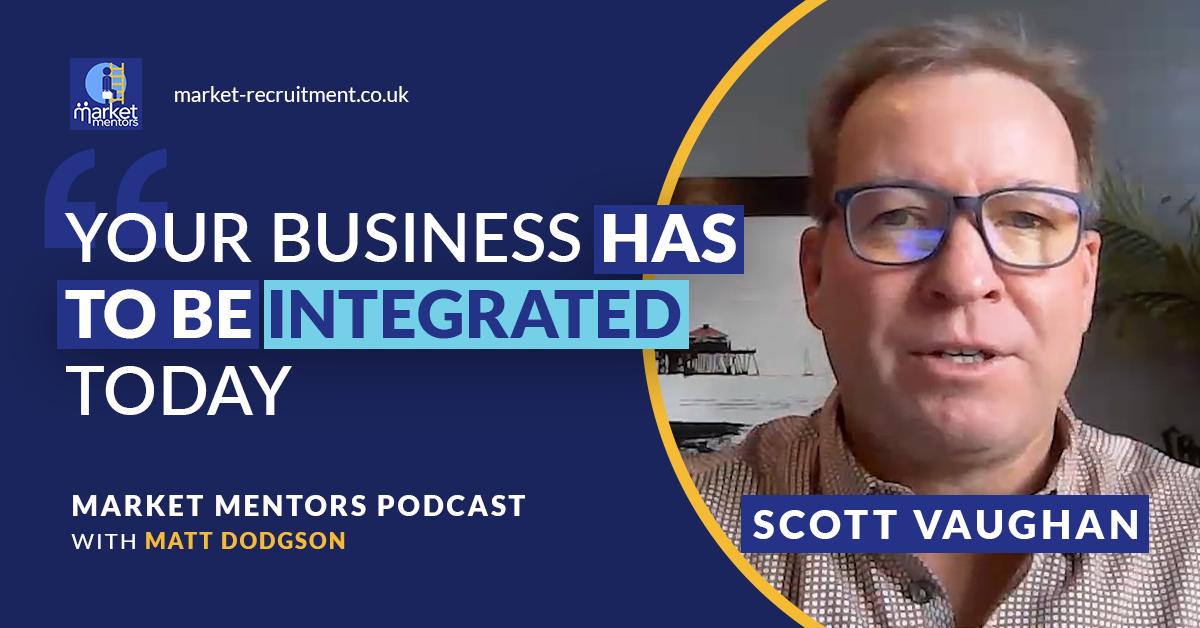
Marketing plays an instrumental role in the growth and success of B2B SaaS start-ups today. But making mistakes when building a marketing team could have a damaging impact on the business.
In this episode, Scott Vaughan talks to Matt Dodgson about some useful marketing strategies you can use to scale your early-stage tech SaaS start-up.
Who they are: Scott Vaughan, experienced CMO and go-to-market specialist.
A bit of background: Scott is based in California and is a B2B CMO and go-to-market leader with a track record of collaboratively building businesses, expanding markets, accelerating growth, and developing impactful teams that create value.
Where you can find them: You can connect with Scott on LinkedIn here.
Here you’ll find some of the best advice from the podcast that you can easily digest and learn from.
Marketing for B2B SaaS start-ups is a unique challenge, because you can never sit still or get too comfortable.
With SaaS products, you aren’t dealing with one-time transactions like you would in traditional business models. Because of this, B2B tech marketers need to work hard to constantly prove and re-prove their product’s value.
You have to grow with your business, evolve with your market, and earn your customers’ business back every year or two. And this is more difficult today than ever before. Not only because technology matures so quickly, but also because innovative new products are popping up every day.
As Scott explains in this week’s podcast, that ongoing ‘customer success’ requires a unique type of strategy for communicating, supporting, and engaging with your market.
One way Scott suggested early-stage start-ups can achieve this is by finding advocates who champion your brand.
As you build your go-to-market value and your story, and hone in on those use cases that are going to help you get to the next phase, where customers see the problem and you become the solution for that, the first thing is you want to go out and try to find is who the advocates are in your market. They could be analysts, they could be prolific bloggers, they could be your first customers who really get this new thing. You want to work with them to get the go-to-market, to make sure you’re communicating the right things, because then they become advocates and that builds from there.”
Scott VaughanFor SaaS companies, building a community of people who truly understand the problem your product solves is crucial. Not only will that community help you develop and refine your market positioning, but they’ll also add credibility by reinforcing the value of your product.
Scott added, “As a CMO, I spend a lot of time with that group because I want them to help us shape our company and get it right.”
On hiring the first marketer for a SaaS company, Scott said, “Typically, hopefully, it’s not a CMO. In that first stage where you’re going and you’re getting a customer base, I’d want a product marketer and someone who’s more well-rounded in building out some fundamental marketing things.”
“Product marketing is critical. Why? Those use cases. Getting that product roadmap, and not trying to build everything, but build what’s going to get those use cases maximised and that adoption in place, always with a vision and a roadmap that can be altered.”
As we’ve already heard on the podcast recently, it’s a wise move to begin by hiring a product marketing specialist first. And once that person’s in place, Scott had the following advice for where to focus the SaaS marketing efforts:
“In that early-stage scenario with just one marketer, focus on getting your product market fit, your unique value propositions, and your use cases. And that may take a little bit longer if you’re only hiring one marketer, or you haven’t felt the lift of immediate traction. So it’s more research-oriented. But you still want to be looking for advocates and feedback too, although maybe not at the same scale.”
Today, you should be utilising the marketing technology available to you from a very early stage, according to Scott.
But he also warned that you must implement modern marketing technology with a strategic approach. Furthermore, it should always be compatible with systems across the whole business.
Scott explained, “I would build from the company out. And what I mean by that is whatever systems I put in in marketing must talk to all the company systems. Because oftentimes, you’re under so much pressure. You think, we need pipeline, we need this, we need that, so I’ll just put in my marketing tools and systems that I know. This is great, because you have to make traction, but there’s no thinking about how they connect to finance, or operations, or with the product input you’ll need in your marketing systems.”
This synergy between systems is more important than ever, as technology has become so pervasive within all areas of businesses.
It’s also a useful reminder of what we learned on last week’s podcast episode, that digital marketing tools are only as good as the data and information you put into them.
Scott added, “Many marketers do think about that today more cognizantly, because you can’t have silos. Your business has to be integrated today.”
Subscribe to our fortnightly newsletter to hear about our latest podcasts, blogs, career advice & jobs.